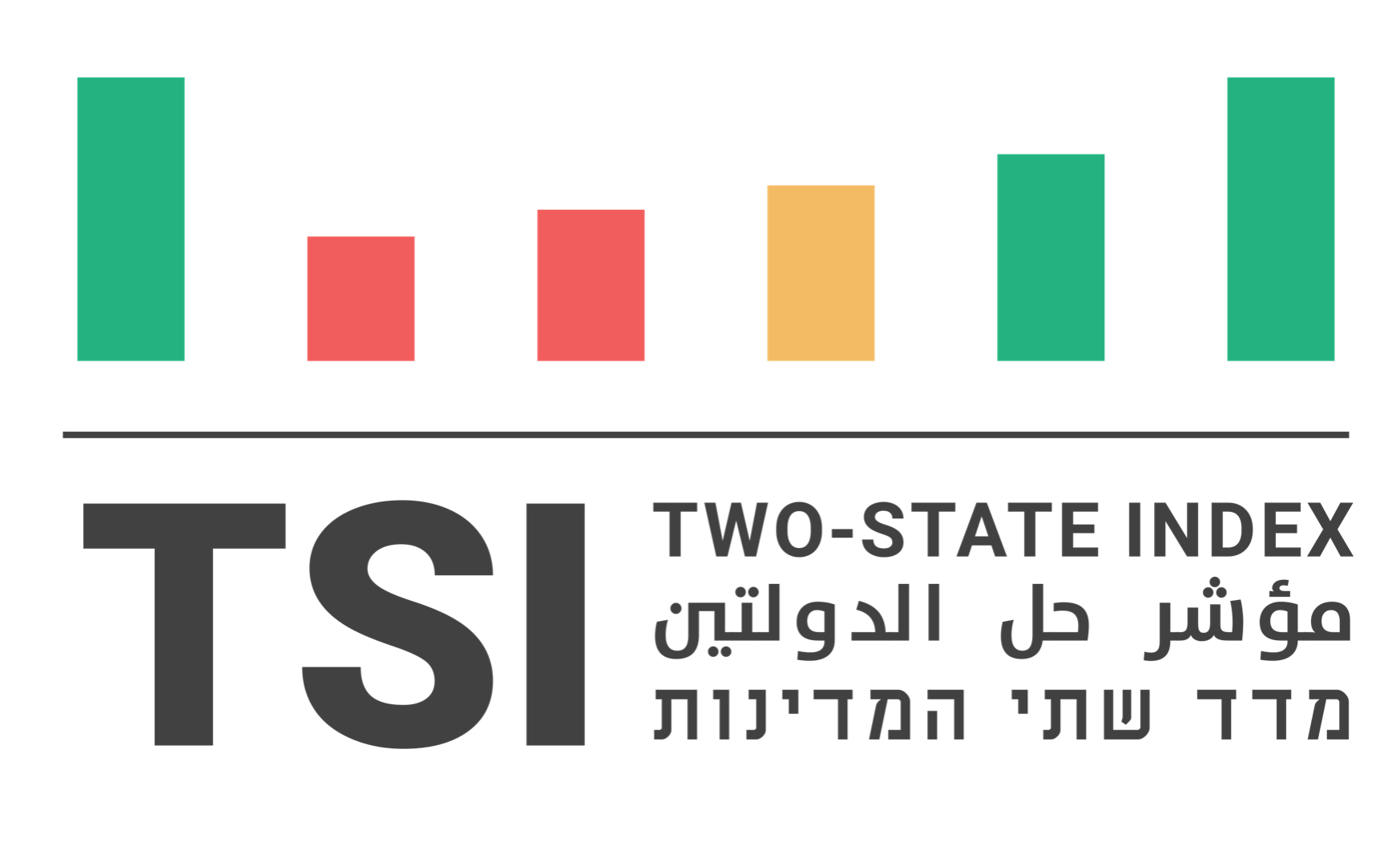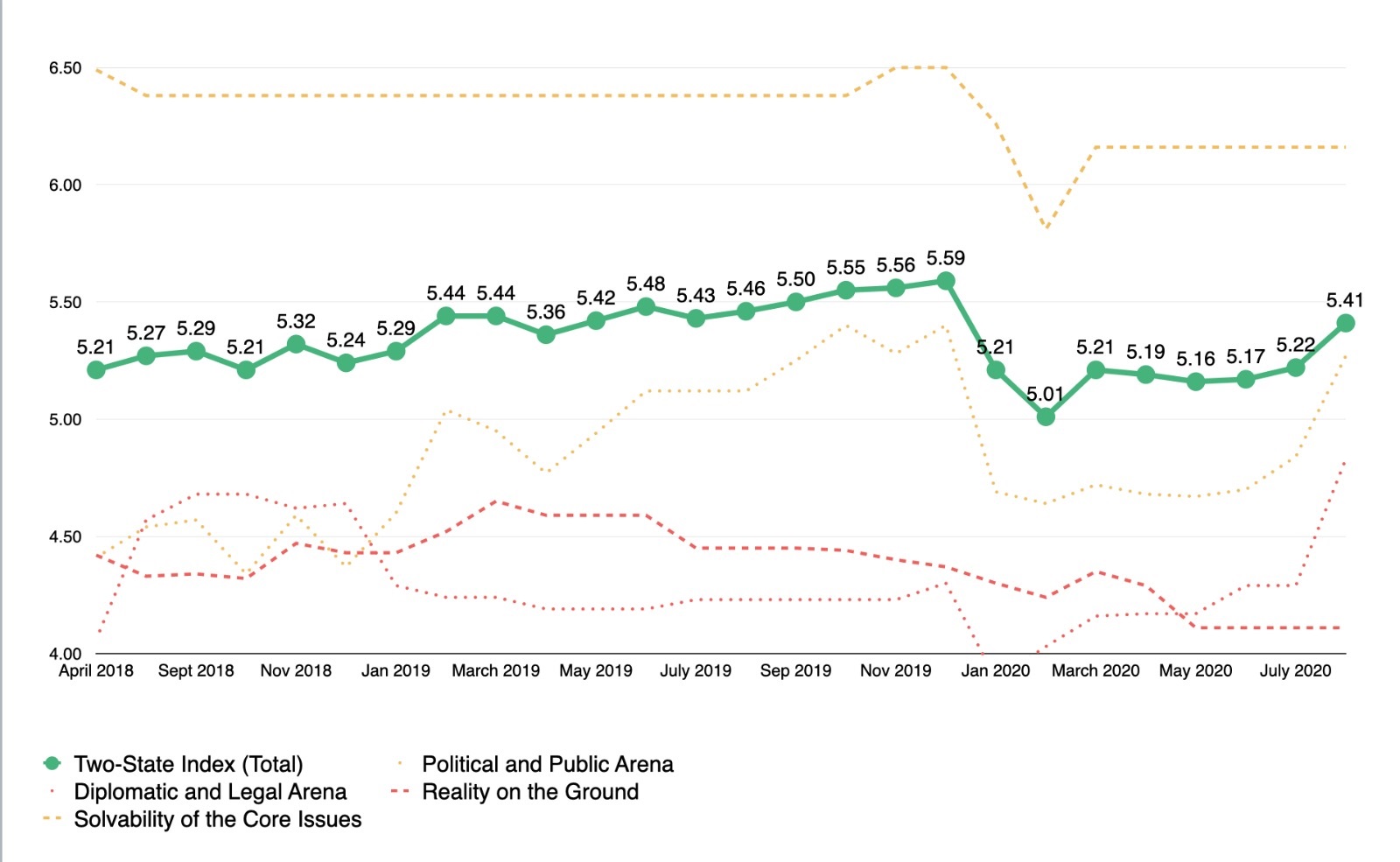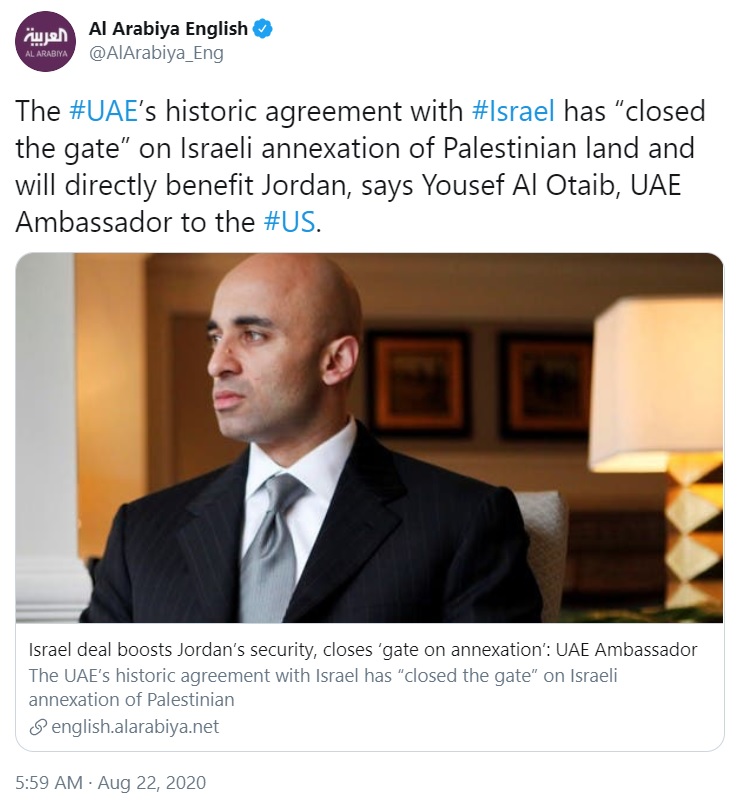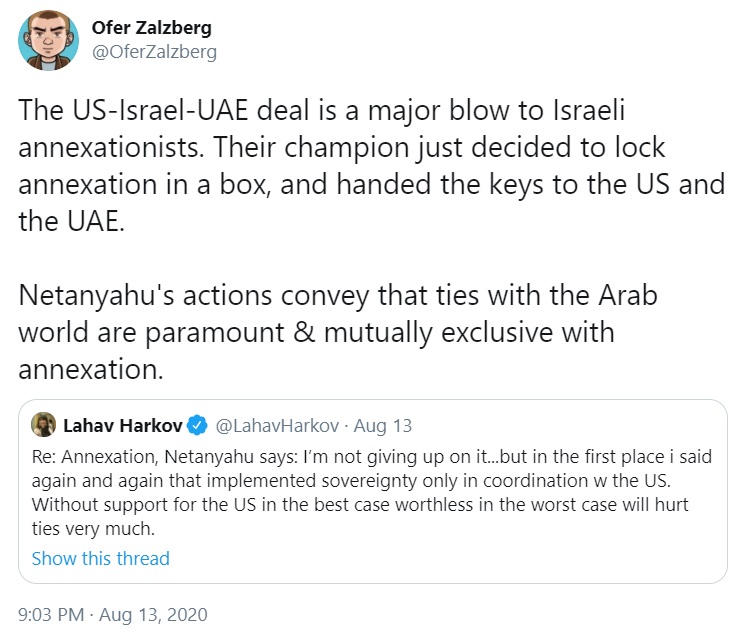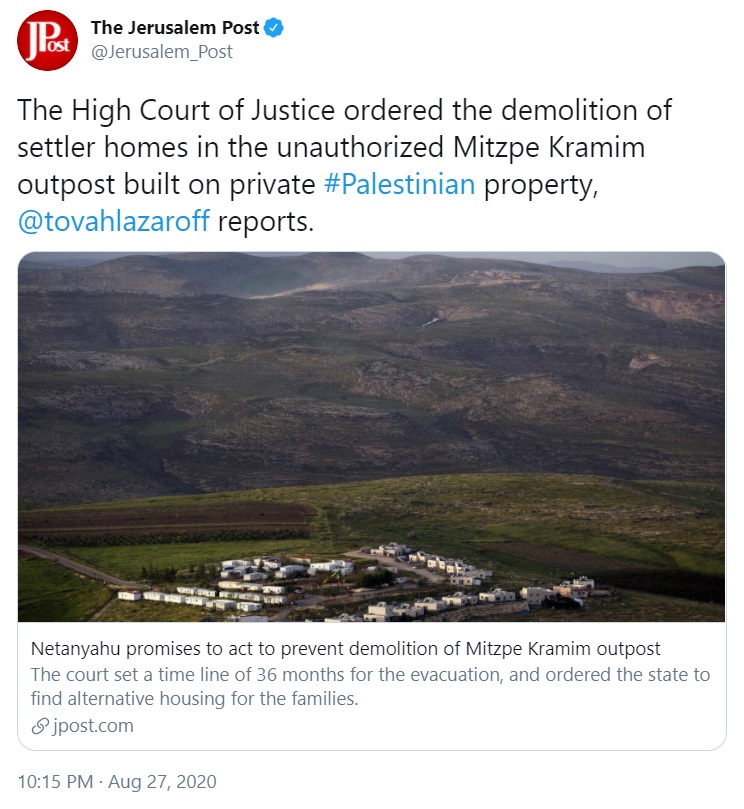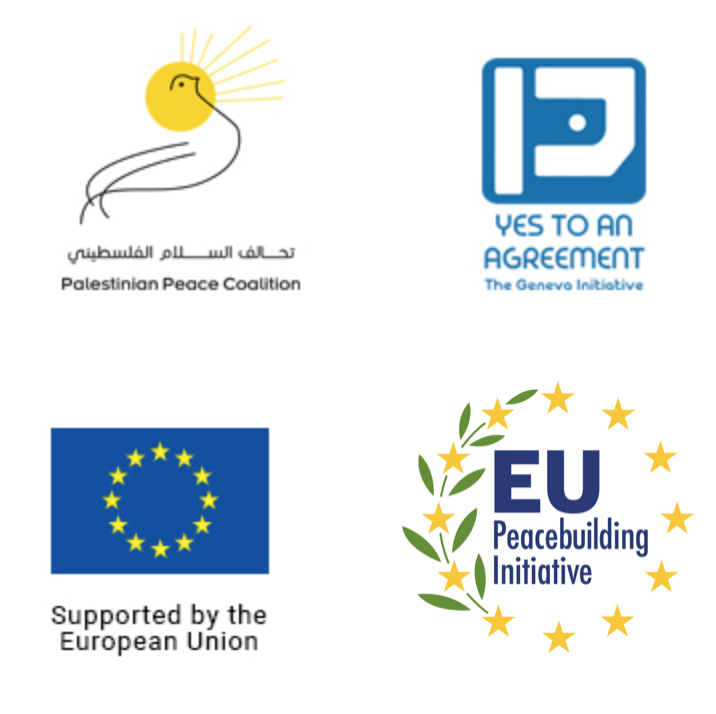August, in short: - Normalization of Israel-UAE ties ends Netanyahu’s annexation bid: Trump administration makes clear that annexation is no longer on the agenda, while Palestinian backlash leads to improved Fatah-Hamas relations
- Ceasefire brings an end to month of violence in Gaza: Rocket-fire and incendiary balloons halted and Israeli punitive measures reversed, as COVID-19 outbreak prompts state of emergency
- Israel’s High Court rules illegal outpost must be evacuated: Court’s decision also allows for future use of new tactic for retroactive legalization
These events increased the Two-State Index (TSI) by 3.6% (up 0.19 points from 5.22 in the previous month). |
|
|
|
To learn about the Geneva Initiative's TSI, visit our website. |
|
|
|
Israel-UAE deal removes threat of annexation
Along with the August 13th announcement of normalization of ties between Israel and the United Arab Emirates, it was revealed that the agreement was predicated on Israel not moving forward with annexation of parts of the West Bank. While PM Netanyahu claimed that annexation had only been temporarily “suspended,” President Trump later stated that any such move was “off the table.” For their part, UAE officials said that the normalization deal was a “death blow” to annexation and that stopping the effort was their “main concern.” UAE leader Mohammed bin Zayed tweeted that “an agreement was reached to stop further annexation of Palestinian territories”.
The Israeli public was overwhelmingly in favor of the agreement, with a Channel 12 poll finding that roughly 77% preferred it over annexation. “All of a sudden the word ‘peace’ in the Israeli discourse is legitimate, even popular … it became a political asset,” noted Geneva Initiative Director-General Gadi Baltiansky. By pursuing an agreement based on suspension of annexation, “we have a clear recognition by the US and Israel that the way forward [for Israeli-Palestinian peace] is the two-state solution,” added Nidal Foqaha, Director-General of the Palestinian Peace Coalition-Geneva Initiative.
However, the deal was fiercely denounced by the Palestinians, with a spokesperson for President Abbas labeling it “an aggression against the Palestinian people" and “a betrayal.” The Palestinian Authority immediately recalled its ambassador to the UAE and called for emergency meetings of the Arab League and Organization of Islamic Cooperation (OIC). Former PM Salam Fayyad encapsulated Palestinian frustration when he wrote that “Israel got itself a huge prize for merely temporarily refraining from committing another egregious violation of international law.”
The UAE was also criticized for undermining the Arab Peace Initiative (API), which offers Israel peaceful relations with all 57 OIC countries following achievement of a final status agreement with the Palestinians. “[The Israel-UAE agreement disrupts this] diplomatic mechanism that Mahmoud Abbas has tried to use,” said Palestinian commentator Daoud Kuttab. “[The API] has become one of the tools that Palestinians have been trying to use to end the occupation and once a country violates the consensus, it weakens [this tool].”
Abbas later discussed the issue over a phone call with Hamas leader Ismail Haniyeh, a sign that reaction to the agreement could generate substantive movement toward reconciliation between the two factions. Representatives of Hamas and Islamic Jihad subsequently attended a PLO strategy meeting in Ramallah, and a joint Fatah-Hamas rally was held one day later in the West Bank. On August 30th, it was announced that Abbas would chair a meeting of the leaders of major Palestinian factions, joined by Haniyeh and Islamic Jihad’s Ziyad al-Nakhaleh, to launch “a joint national position to thwart the [Trump administration’s] Deal of the Century." |
|
|
|
Despite Palestinian objections, a number of regional actors and much of the international community welcomed the agreement, with the UN’s Nikolay Mladenov lauding its “potential to change dynamics across the region … [and create] opportunities for peace.” Jordanian FM Ayman Safadi said that “if Israel [regards the deal] as an incentive to end occupation ... it will move the region towards a just peace.” Saudi Arabian FM Prince Faisal bin Farhan commented that “any efforts that result in holding back the threat of annexation could be viewed as positive,” and added that the kingdom remains committed to the API.
The agreement was celebrated by EU states as well, with German FM Heiko Maas praising it as “an important contribution to peace in the region” and French FM Jean-Yves Le Drian described it as “a positive step, which must become a definitive measure.” UK Foreign Secretary Dominic Raab also welcomed the deal, and he subsequently visited Jerusalem and Ramallah, meeting with Netanyahu and Abbas to push for official Israeli-Palestinian dialogue between their governments and “reinforce UK commitment to preventing annexation and pursuing a negotiated two-state solution,” according to the British Foreign Office. In addition, during an August 27th trip by Israeli FM Gabi Ashkenazi to meet with European foreign ministers in Berlin, a number of FMs proposed reinstating the annual meeting of the EU-Israel Association Council, which has been suspended since 2013.
In analyzing the Israel-UAE agreement’s potential benefits for pursuing a two-state solution, Hussein Ibish of the Arab Gulf States Institute observed that “the two Arab countries … which have diplomatic relations with Israel, Egypt and Jordan, have been far better able to cure specific Palestinian interests on the ground, including in Gaza, than Arab states that keep Israel at arm's distance.” Moreover, while UAE officials admitted that no “guarantees” were secured against future annexation, the UAE’s public portrayal of the issue’s centrality to the deal makes clear that the agreement could be cancelled if Israel moves forward. Former US ambassador to Israel Dan Shapiro stressed that “officials involved in the discussions tell me that there is a much more specific, longer-term Israeli commitment … it is impossible to imagine Israel publicly humiliating the UAE’s ruler by reviving annexation.”
The removal of annexation from the Israeli government’s agenda – a move that would have severely threatened the viability of a two-state solution – shifted the parameter related to Israeli law in the West Bank from 4 to 6 in August. The ultimately successful efforts by the international community to achieve this outcome increased each of the Arab world, Third-party engagement, International community, and Europe parameters from 7 to 8, and the Basic international norms parameter from 6 to 7; facilitation of the Israel-UAE deal by the US moved the relevant parameter from 3 to 4. The agreement’s support among the Israeli public, for whom the idea of peace and its benefits now have increased legitimacy, shifted the Israeli public opinion parameter from 6 to 7. Furthermore, the improved relations between Fatah and Hamas pushed the relevant parameter up from 2 to 3. |
|
|
|
Month-long tit-for-tat attacks between Israel and Hamas end with ceasefire
Starting on August 2nd, there was continuous launching of rockets and incendiary balloons by Palestinian militants from Gaza into Israel, along with Israeli bombing and shelling of the Strip in response. The violence continued almost daily until a ceasefire was declared on August 31st. Mediated by Qatari envoy Mohammed al-Emadi (who had visited Gaza on August 25th to distribute $30 million), the deal was announced by Hamas leader Yahya Sinwar as including a number of projects to “serve and alleviate the situation for our people in Gaza.” The next day, punitive measures instituted by Israel – the closing of Gaza’s fishing zone and the Kerem Shalom border crossing, and halting of fuel supplies – were reversed.
The attacks by Hamas had come after a relative lull over the previous six months, and they caused hundreds of fires in southern Israel. However, there were no casualties on either side. The Strip is now facing a severe outbreak of the coronavirus, including the first deaths in Gaza since the pandemic began, with Hamas declaring a lockdown of the entire territory on August 30th.
“In Hamas’ view, as time passes without achievements, the organization loses its relevance, and its status and governmental stability are undermined,” according to Noa Shusterman and Udi Dekel of INSS. “[Hamas leader] Yahya Sinwar's assertive and aggressive actions and willingness to go to the edge of war can also be attributed to the internal elections process in Hamas scheduled for the end of the year, and the need to fortify his status as leader of Hamas in the Gaza Strip.” Palestinian analyst Mohammed Younis added that “Hamas is trying to use the political climate in Israel to push for easing the blockade. They know that Israel won’t go for a war in Gaza in a time of normalization with new Arab countries.”
For now, the parameters related to Palestinian attacks and IDF military attacks in Gaza both remain the same. |
|
|
|
High Court rules that outpost must be evacuated, greenlights tactic for legalization
On August 27th, Israel’s High Court of Justice ruled that the Mitzpe Kramim settlement outpost in the West Bank was built on private Palestinian land, and must be evacuated. However, the judges did approve the use of a legal tactic known as “market regulation.” In principal, this would allow illegal outposts to be retroactively legalized if they are determined to have been built in “good faith.” The ruling angered settler leaders, who complained that the Settlement Higher Planning Council, which is authorized to advance construction projects in the West Bank, has not convened since February.
The High Court’s order to evacuate a significant illegal settlement outpost shifted the parameter related to expropriation of private Palestinian lands from 5 to 6. |
|
|
|
The Two-State Index (TSI) is brought to you by the Geneva Initiative, a Palestinian-Israeli organization working to promote a negotiated peace agreement in the spirit of the two-state vision. The TSI is produced by an Israeli-Palestinian team, and reflects a unique bilateral perspective. |
|
|
|
Think we missed something this month? Send us tips and comments here. |
|
|
|
This publication was produced with the financial support of the European Union. Its contents are the sole responsibility of the Geneva Initiative’s Two-State Index (TSI) editorial team and do not necessarily reflect the views of the European Union. |
|
|
|
|
|
|
| Advertisement |
This message was sent byTwo-State Index, H.L. Education for Peace, Geneva Initiative, 33 Jabotinsky rd., Ramat-Gan 525108, Israel, .
You may notify us, any time, for no charge, of your refusal to receive advertisements by sending a refusal message to the address TSI@genevainitiative.org
or by pressing the "unsubscribe" link at the bottom of the message. |
Powered by Publicators
Powered by Publicators
